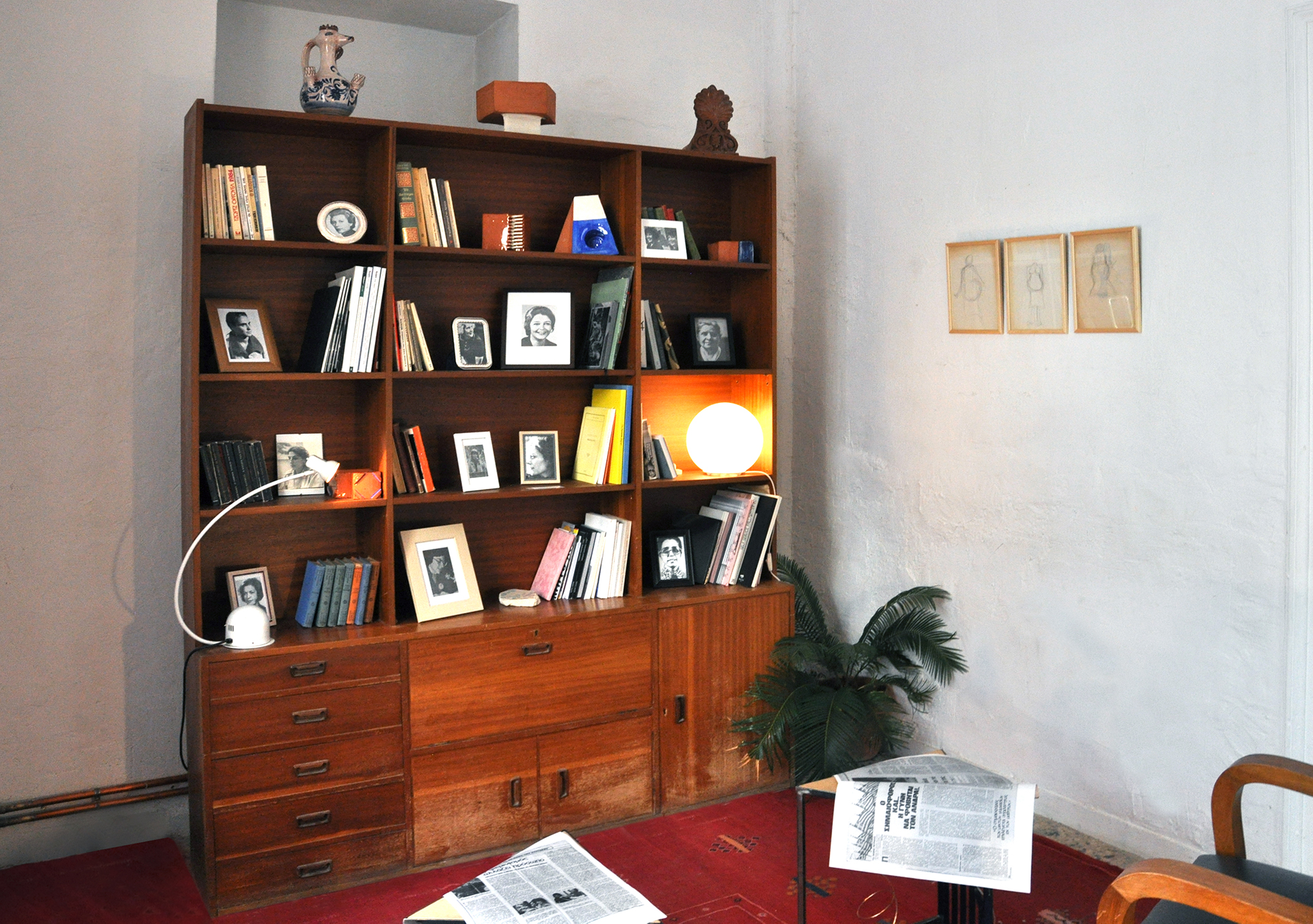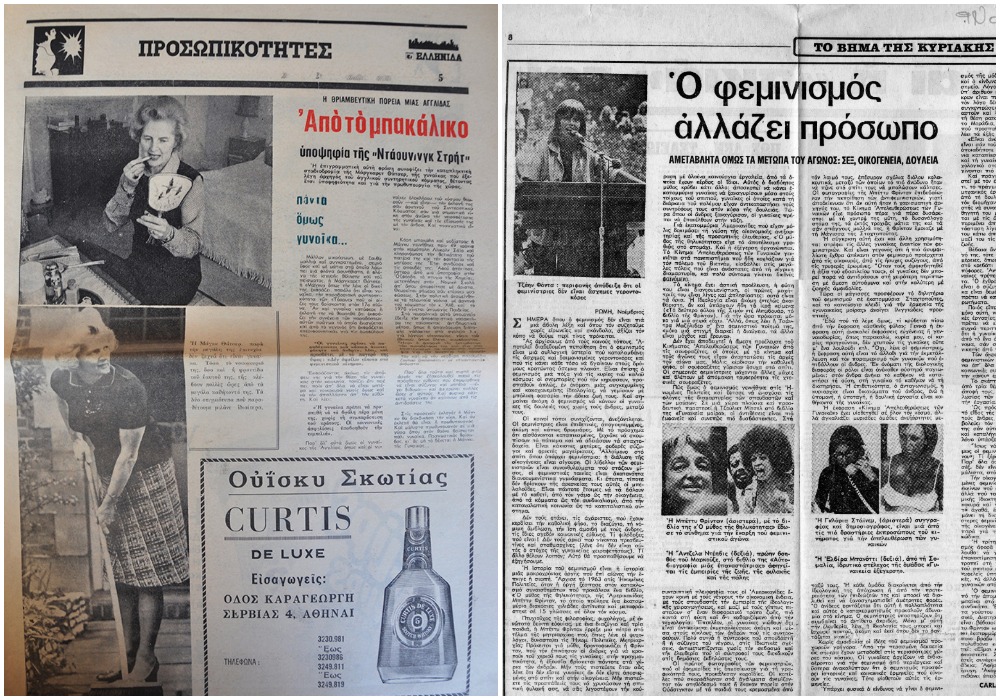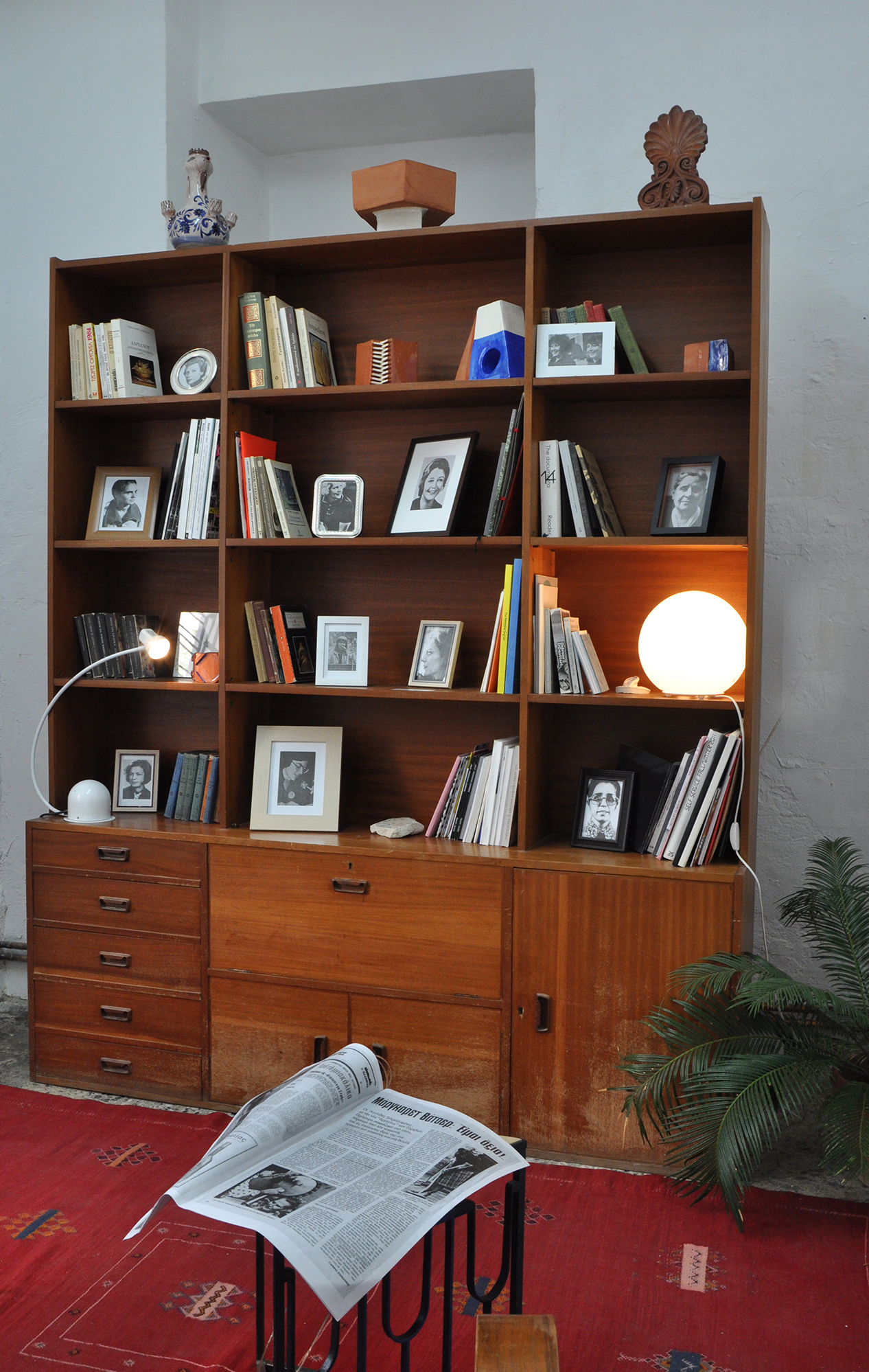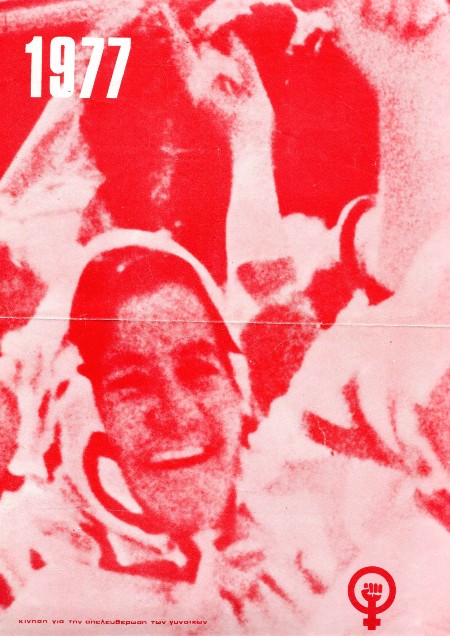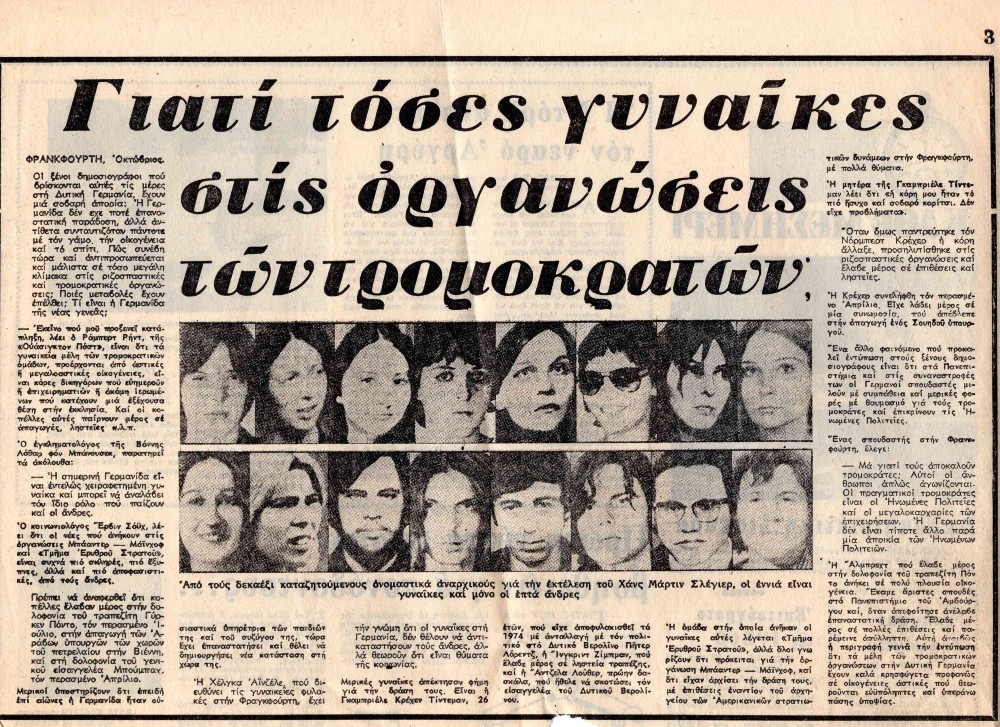Γυναίκες (meaning women in Greek) is a
site-specific installation. The work developed from the recently discovered material
of my mother’s archive.
The archive includes publications, mostly between 1973-75, of the Greek press (newspaper and magazine clippings), zines and magazines by
feminist organizations and groups
in Greece, and some from Italy and France, as well as notes and sketches.
The archive,
although it has a
purely political and social orientation, was read in
emotional terms which were
mainly determined by the close
relationship with my mother. The photos of the public figures found in the archive, are placed in photo frames in order to decorate the living room of a house. They abandon their public character and
become close relatives
and friends. This change of roles is not directly understood as their relocation from
the public to the private sphere, is very personal. Regardless of the different roles and
references that shape
them, the subjects depicted, contain, right from the start, another
meaning for me. One which, perhaps,
can only be
described in the sense of punctum that Barthes attributes to photography
in general, and especially to the “Winter garden photograph”. (R.Barthes,
Camera Lucida, 1993, Vintage).
My reading
of the archive deprives the subjects of their original political,
historical and sociological implications, by seeking a more intimate approach. It completely discharges them from any mission,
no matter how important that is, and looks at them through the sensitive prism of the closeness to my
mother. It could be suggested
that this imposes an atemporal and apolitical dimension to the subjects, causing amnesia and detachment, yet
it could also mean release, even redemption, whether they deserve it or not, from the established public
image reinforced by the media and
the social norms.
